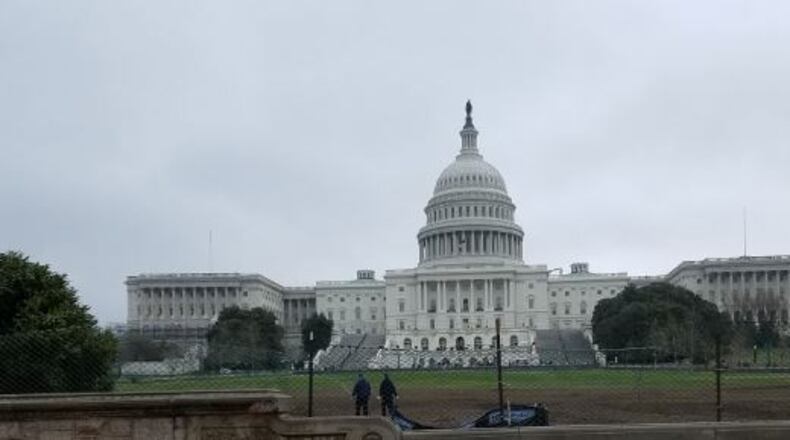While Republicans have vowed for years to balance the federal budget, there are few signs that President Donald Trump or GOP lawmakers will make significant headway to cut into the current $20 trillion federal debt, as a top White House aide said Wednesday that Mr. Trump's campaign talk of getting rid of the debt was "hyperbole."
"It's fairly safe to assume that was hyperbole," said White House budget chief Mick Mulvaney, who told CNBC in an interview that the President was not going to focus on major changes in mandatory spending as a way to balance the budget, "because the public's not ready for it yet."
Credit: Jamie Dupree
Credit: Jamie Dupree
A look at the most recent budget reports show the growth in spending at the federal level is not being driven by regular programs that Congress deals with on a yearly basis, the so-called "discretionary spending" programs, which fund everything from the Pentagon to Congress, and various Executive Branch departments.
Instead, the major cost drivers are what they have been for years - Medicare, Medicaid, Social Security, and other entitlement programs.
"Outlays for the first six months of fiscal year 2017 totaled $1,996 billion, CBO estimates —$ 61 billion (or 3 percent) more than they were during the same period last year," read a recent report from the Congressional Budget office.
Here's how the CBO summarized why the deficit is going up in 2017:
Credit: Jamie Dupree
Credit: Jamie Dupree
Also starting to go up more, the interest on the national debt - as interest rates increase, that figure will continue to increase - so far, spending on interest for the public debt is up $28 billion compared to a year ago.
In the first six months of the 2017 fiscal year, the CBO estimated the federal budget deficit was $522 billion, up $63 billion from a year ago.
In recent years, GOP plans to balance the budget have often not accomplished that goal for eight to ten years - President Trump's first budget outline did not envision any decrease in the deficit for the 2018 budget, leaving it around $480 billion.
"Turns out neither party cares," said Sen. Ben Sasse (R-NE).
Republicans have yet to put their budget plans on the table for 2018 in the Congress.
Federal budget procedures require Congress to approve the spending blueprint known as the "budget resolution" by April 15 - but that plan has yet to be unveiled by Republicans for 2018.
About the Author
The Latest
Featured





